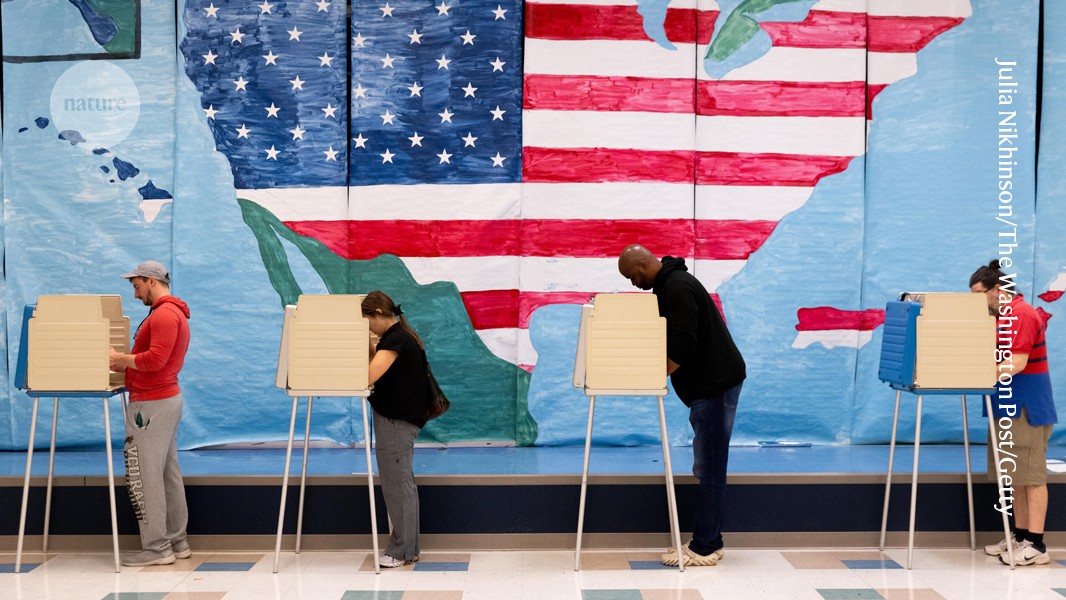cross-posted from: https://lemmy.ca/post/31925477
For Drutman, US efforts to incorporate ranked-choice voting can have only a limited effect, and don’t necessarily change the core problem of politics in the country, as he sees it. The system still pushes towards two dominant parties, and avoids proportional representation at the district or state levels. In his view, the goal should be more parties, focused on giving more voters a voice and on building cross-party coalitions, instead of experiments with ranked-choice voting to elect particular candidates. But he does see a positive note from these experiments: “There’s definitely interest in electoral reform.”



Well, as AOC famously said, she’d be in a different party from Joe Manchin if we had a multiparty democracy.
If you feel the party doesn’t represent your views then either vote for or found another one, or advocate for a split. To me this seems much smaller than the problems with the current US system. But maybe someone with direct experience in multiparty democracy can share their experience.
Also, I think it’s possible to create a direct candidate election system that is also proportional. One idea would be to grant each candidate voting power relative to their vote share. So if there’s three parties, you send three members to represent your district, but maybe one gets 50% of the voting power, one gets 40%, and another gets 10%. But I haven’t heard many people discuss such systems.
The issue isn’t just one of partisan extremes. Just look at the near miss in the Democratic primaries this year. Biden was the choice of the party leadership and it took his public humiliation and a massive pressure campaign to get a replacement. The people calling the shots at the party level do not necessarily have same interests as the voters, even when they are politically aligned.
Sure, you can jump ship and go to a new party, but that only works when enough voters care to make them jump ship, and when there is a worthwhile alternative. That also means abandoning anyone you support in the party, because they are all lumped together and there’s no separating the people you want to vote for from the people you oppose. Building a new party from the ground up is a much more extreme reaction than just voting for a different person.
I wouldn’t have the same objection if we had a system where we were had proportional representation spread across specific candidates voted into office. I would have some questions about how it would work, but it would address the issue I’m bringing up.
Well, I generally agree that party leaders have way too much power, but that seems to be an issue across many different systems. Your example is from a FPTP system. Is there some reason to think it would be worse if we had proportional voting? I mean I can see how party leaders might have more power in some ways. But on the other hand it’s much easier to abandon them for another ideologically similar party if they abuse it. Yes it means abandoning AOC or whoever your favorite is but they can also jump ship if need be. I think we need a different solution to overly powerful party leaders.
But the thing is, there are so many things I would want to change about the Democratic Party, but I can’t abandon them because my only alternative is far worse. If we had a diversity of somewhat similar parties then it would be much much easier to pressure them into doing what voters want.
Ranked choice would do this to some extent as well, so I broadly support both. However, I have concerns about election security with ranked choice. Unless the election authorities share their ballot data, it’s very very difficult to determine who the true winner should be from exit polling or similar. There was a major fiasco in Alameda co California where the wrong candidate was seated by accident and no one even noticed until a later audit was done by a non-profit group.
It’s not that it would be worse, it’s that it would be the norm. The party would always be the one with the final decision on who actually represents you.
Which makes it an all or nothing proposal. You can have the entire party or none of it. You can’t vote out a particular shithead, you can only take the nuclear option and abandon the whole party. That makes it a lot harder to hold each individual representative accountable to the people they are supposed to be representing.
To bring this back to real world examples, the only reason Kari Lake and Mark Robinson are not likely to win their elections is because the voters get to vote on a specific candidate. Both would easily have the support of their party’s leadership, and the party’s supporters would certainly vote for their party, but a large number of those who support the party don’t want those candidates. That ability to say “no, not you” is not something we should give up when trying to reform the system.
Not suggesting we keep the status quo, Just suggesting that any reform should keep representatives directly accountable to voters.
Transparency absolutely needs to be the rule. If we move to RCV, we need to have the full dataset released with each election. Results should be published showing the percentage each candidate got for 1st, 2nd, 3rd, etc. and the order in which they are eliminated. It would take a while for everyone to get used to it, but the data should be straightforward and it isn’t hard to figure out how to fit into a simple enough graphic for people to understand.